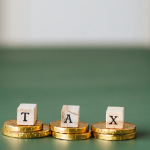If you’re self-employed and considering becoming a sole trader, you might be wondering about the taxes you’ll be required to pay. Many people choose the sole trader route because it’s simple and straightforward, but tax obligations can seem a bit complex if you’re unfamiliar with the system. Let’s break down exactly what taxes a sole trader is responsible for and how to manage them effectively.
Does a Sole Trader Pay Corporation Tax?
As a sole trader, you do not need to pay corporation tax. This tax is reserved for limited companies and other corporate entities. Instead, sole traders are taxed as individuals, meaning that your earnings will be subject to personal income tax and National Insurance contributions (NICs). While a limited company pays a flat corporation tax rate, a sole trader faces multiple tax types based on their profits, which can vary depending on their income.
What Taxes Do Sole Traders Pay?
Sole traders are responsible for several types of taxes depending on their earnings and business activities. Here’s a breakdown of the taxes you might encounter:
- Income Tax: Sole traders pay income tax on their profits once they exceed the personal allowance.
- National Insurance (NI): You will be liable for Class 2 NI contributions if your annual revenue surpasses a set threshold. Additionally, you may need to pay Class 4 NICs on profits exceeding a lower limit. The more you earn, the higher your contributions will be.
- Value Added Tax (VAT): If your taxable turnover exceeds the VAT registration threshold (£90,000), you must register for VAT. If your turnover is below that threshold, you can still register voluntarily to reclaim VAT on business-related purchases.
- Capital Gains Tax (CGT): This applies when you sell business assets. You may use various strategies to reduce the capital gains tax liability on these sales.
Allowable Expenses for Sole Traders
To reduce your taxable income, you can claim allowable expenses related to running your business. These expenses must be solely and exclusively for business use, so personal expenses do not qualify. Here are some of the common expenses you can deduct:
- Travel Costs: Including vehicle insurance, fuel, and travel fares.
- Office Supplies: This can include phone bills, stationery, software subscriptions, and printing costs.
- Clothing: For specialized clothing such as uniforms or protective gear.
- Salaries & Subcontractor Payments: If you pay employees or freelancers, their wages and benefits are deductible.
- Financial Expenses: Such as loan interest, business insurance premiums, and accountancy fees.
- Training & Development: Costs for any business-related courses or training programs.
- Advertising & Marketing: This includes paid ads, promotional materials, and website development costs.
- Stock & Materials: Including goods bought for resale or raw materials for production.
If you use items for both business and personal purposes, you can only claim the portion that is used for your business. If you’re working from home, you can also claim a portion of your household bills, such as internet, electricity, and rent.
What Is the Current Tax Rate for Sole Traders (2024/25)?
For the 2024/25 tax year, the income tax rates for sole traders are as follows:
- Personal Allowance: Up to £12,570 – 0% tax rate
- Basic Rate: £12,571 to £50,270 – 20% tax rate
- Higher Rate: £50,271 to £125,140 – 40% tax rate
- Additional Rate: Over £125,140 – 45% tax rate
It’s worth noting that the income tax bands differ for residents of Scotland, so be sure to check the local rates if you’re based there.
Self-Assessment Registration
As a sole trader, you need to register with HMRC for self-assessment. You must do this by October 5th following the end of your first tax year as a sole trader. Once registered, you will receive a unique taxpayer reference (UTR) number, which you’ll use to file your tax returns. The deadline for submitting your online self-assessment return is January 31st each year.
When Do Sole Traders Pay Tax?
Sole traders must pay income tax, National Insurance, and VAT (if applicable) annually. Your self-assessment tax return will tell you the exact amount you owe. After filing your return, HMRC will notify you of your tax bill, and you’ll need to make payments by the following deadlines:
- January 31st: This is the deadline for paying the tax due for the previous tax year.
- July 31st: This deadline applies to advance payments known as “payments on account” for the current year.
Filing Your Tax Returns
For the 2024/25 tax year (which runs from April 6, 2024, to April 5, 2025), the deadlines for filing your tax returns are:
- Paper return: October 31, 2025
- Online return: January 31, 2026
Make sure to file on time to avoid any penalties for late submissions.
Final Thoughts
As a sole trader, while you won’t pay corporation tax, you will be responsible for income tax, National Insurance, VAT (if applicable), and capital gains tax. By understanding what taxes you need to pay and taking full advantage of allowable expenses, you can reduce your taxable income and stay compliant with HMRC. Always ensure that you meet the registration deadlines and file your self-assessment returns on time to avoid penalties.



